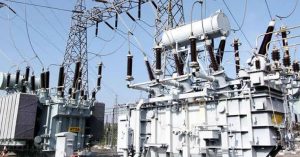
In response to Nigeria’s persistent power supply challenges, approximately 250 major manufacturers and academic institutions have opted out of the national grid, choosing instead to generate their own electricity. This collective move has resulted in the production of about 6,500 megawatts (MW) of electricity, surpassing the country’s current generation capacity, which fluctuates between 4,500MW and 5,000MW.
Key Players in Captive Power Generation
Leading this shift is the Dangote Group, which alone produces approximately 1,500MW for its operations. Aliko Dangote, the company’s president, highlighted that the Dangote Refinery’s 435MW power plant has the capacity to meet the total power requirements of the Ibadan Electricity Distribution Company.
Other prominent entities, such as the Nigerian National Petroleum Company Limited (NNPCL) and Total, have also transitioned to self-generated power solutions. These organizations have obtained captive power generation permits from the Nigerian Electricity Regulatory Commission (NERC), allowing them to produce electricity exclusively for their own consumption. The issuance of such permits has seen a notable increase since 2023, following the enactment of the Electricity Act 2023 by President Bola Tinubu.
Implications for the National Grid and Economy
The migration of these large-scale electricity consumers away from the national grid underscores the pressing issues of grid reliability and efficiency.
Frequent blackouts, grid collapses, and line trippings have compelled these organizations to seek more dependable power sources to sustain their operations. This trend not only reflects the challenges within Nigeria’s power sector but also highlights the proactive measures businesses are taking to mitigate operational disruptions.
Government’s Perspective
The federal government has expressed concerns over this exodus from the national grid, recognizing the potential implications for the country’s energy infrastructure and economic stability. The shift towards self-generation by major power consumers could lead to decreased revenues for distribution companies (Discos) and may necessitate a reevaluation of national energy policies to address the underlying issues prompting this trend.
Conclusion
The decision by major Nigerian firms to generate their own electricity highlights the critical need for reforms within the nation’s power sector. Addressing the challenges of grid reliability and efficiency is essential to retain industrial consumers and ensure sustainable economic growth. As more organizations invest in captive power solutions, the onus is on the government and relevant stakeholders to implement strategies that enhance the national grid’s performance and restore confidence among electricity consumers.

